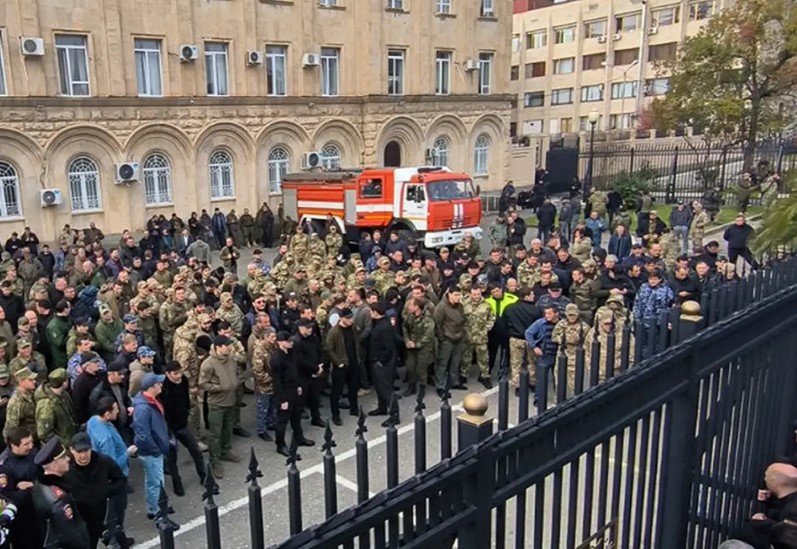The breakaway region of Abkhazia has elected acting leader Badra Gunba as its new president, state media reported Sunday, following months of political unrest that ousted his predecessor. Gunba secured nearly 55% of the vote, surpassing opposition leader Adgur Ardzinba, who received just under 42%. The election, held in the Russian-backed territory, was swiftly condemned by Georgia as a “flagrant violation” of its sovereignty.
A Contested Election in a Disputed Region
Abkhazia, a lush Black Sea territory home to approximately 240,000 people, has been a geopolitical flashpoint since the early 1990s. The region fought a brutal war to break away from Georgia and has remained politically and economically dependent on Russia ever since. Moscow recognized Abkhazia as independent following the 2008 Russia-Georgia war, though most of the international community still considers it part of Georgia.
Gunba’s rise to power comes after months of political instability. He took over as acting leader in November when then-President Aslan Bzhania resigned amid mass protests. Demonstrators stormed government buildings in response to an investment deal with Russia that many saw as a threat to Abkhazia’s autonomy. It was the third time in a decade that protests forced a leader from office.

Economic Struggles and Energy Crisis
The election took place against a backdrop of economic hardship and infrastructure struggles. A severe electricity crisis has plagued Abkhazia, with frequent blackouts disrupting daily life. Officials blame low water levels at a key hydroelectric plant, but critics say large-scale cryptocurrency mining has drained the region’s energy resources.
- The Inguri Hydropower Plant, Abkhazia’s main energy source, has been operating at reduced capacity.
- Cryptocurrency mining, often unregulated, has driven up electricity demand.
- Many households experience prolonged outages, exacerbating frustration among residents.
Gunba has promised to address the crisis, but solutions remain unclear as the territory lacks financial independence and relies heavily on Moscow’s support.
Russia’s Influence and Regional Tensions
Russian President Vladimir Putin wasted no time congratulating Gunba, reaffirming Moscow’s backing of the region. Over the years, Russia has stationed troops in Abkhazia, granted citizenship to many residents, and maintained a tight grip on its economy. While some Abkhazians welcome Russian support, others worry about losing what little autonomy they have left.
Gunba has signaled a commitment to maintaining close ties with Russia while balancing nationalist sentiments at home. However, any shift in Abkhazia’s relationship with Moscow could spark further unrest. Georgia, which still claims sovereignty over the region, condemned the election and vowed to continue pushing for international non-recognition of Abkhazia’s leadership.
The Road Ahead for Gunba
Gunba steps into office at a critical juncture, facing economic, political, and diplomatic challenges:
| Challenge | Description |
|---|---|
| Energy Crisis | Persistent blackouts due to hydropower shortages and crypto mining. |
| Russian Influence | Pressure to align closely with Moscow despite local resistance. |
| Political Unrest | Risk of further protests if reforms or deals with Russia prove unpopular. |
| Diplomatic Isolation | Lack of international recognition beyond Russia and a few allies. |
With Abkhazia’s history of political upheaval, Gunba’s leadership will be tested early. His ability to balance Russian support with local autonomy aspirations will determine whether he can break the cycle of instability—or become the next leader pushed out by mass protests.
